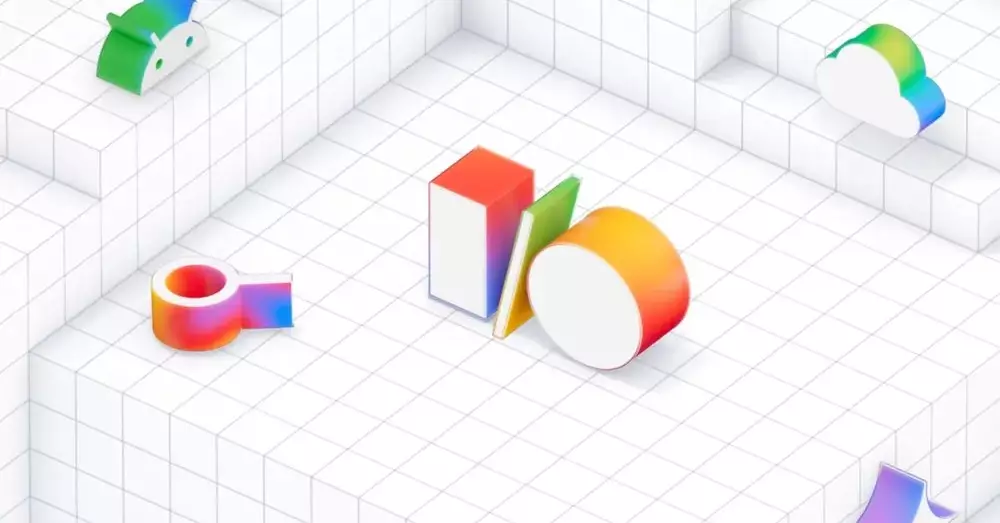As the tech world eagerly anticipates Google’s annual I/O developer conference, the spotlight is exceptionally bright on the themes of Artificial Intelligence (AI) and Extended Reality (XR). This year’s keynote signals a pivotal moment for Google, reflecting broader trends in the tech industry where AI is no longer just a buzzword but a driving force behind transformation. Unlike previous years where mobile operating systems took center stage, this iteration of the conference is expected to reveal Google’s strategic pivot toward emphasizing AI advancements, particularly in the wake of fierce competition from giants like OpenAI and Microsoft.
The focus on AI is largely fueled by Google’s ongoing commitment to innovate and integrate intelligent solutions into everyday life. From enhanced data processing algorithms to more responsive virtual assistants, Google’s AI initiatives aim to improve user experiences across its suite of applications. As the tech community watches closely, the unveiling of new features for their flagship Gemini AI model feels crucial. With two years of anticipatory buildup surrounding Gemini, the pressure is on for Google to not only meet but exceed expectations during the keynote address.
A Powerful Rivalry: The AI Battle Between Giants
It’s essential to view Google’s forthcoming I/O conference through the lens of its competition. Just one day prior, Microsoft will host its Build developer event, setting the stage for a compelling juxtaposition of innovation strategies. As each company strives to outshine the other, Google’s approach to AI enhancements is expected to delve into advanced functionalities that promise a transformative user experience. The introduction of features such as enhanced voice recognition, smarter app integrations, and real-time translation could redefine how consumers engage with technology, establishing Google as a frontrunner in the race for AI supremacy.
However, the hype surrounding AI does not undermine the anticipation for revelations in XR technology. Google’s developing AR vision encapsulated in its Project Astra hints at an ambition that transcends conventional computing paradigms. By integrating AI into XR, Google displays not merely a fascination with emerging technologies but a comprehensive approach aimed at creating synergistic experiences that blend the digital and physical worlds seamlessly. The unveiling of innovative products and prototypes, particularly smart glasses, showcases Google’s intent to maintain relevance in a rapidly evolving landscape where immersive technologies are becoming the norm.
Extended Reality: Google’s Game-Changer in Digital Engagement
In conjunction with its AI focus, Google’s commitment to XR technologies could prove just as crucial in determining its future trajectory. While the prior week’s announcement of Android OS developments may leave some expecting a diluted experience, the emphasis on XR suggests a willingness to explore uncharted territory. The initiative hints at a potential “game-changer” moment in how users connect with digital content through new visual layers and interactions that redefine socialization and productivity.
Moreover, the anticipation surrounding Samsung’s Project Moohan adds an extra layer of urgency for Google to clarify its XR software strategy. If executed well, this could be Google’s moment to reclaim ground in a narrative overshadowed by delayed launches and muted announcements. The tech community is eager to witness how Google plans to integrate the AI capabilities of Gemini into XR environments, potentially leading to an interactive future where the lines between virtual and real-world experiences blur.
Looking Forward: The Keynote’s Implications for Tech Culture
Ultimately, the significance of Google’s I/O keynote extends beyond mere product announcements. The conference serves as a reflection of the current tech culture and the pressing need for innovation that is not just incremental but revolutionary. As Google endeavors to reaffirm its position as a leader in AI and XR, the implications carry weight not only for consumers but for the industry as a whole.
With a significant emphasis on AI integration, and a touch of XR exploration, Google is set to unveil a compelling vision that will resonate throughout the tech world. As I/O 2023 approaches, one thing is clear: this isn’t just a conference; it’s a window into the next generation of technological advancement where the possibilities truly seem limitless.

